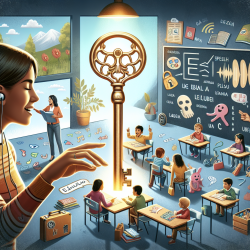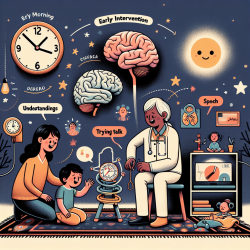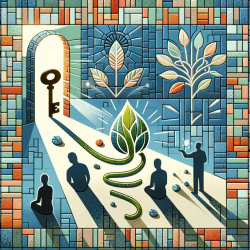The field of speech-language pathology is continuously evolving, with new research shedding light on best practices for assessing and supporting bilingual children. One such recent advancement is the development of the HEGA (Haur Elebidunen Gurasoentzako Galdetegia) parental questionnaire, tailored for clinicians and educators working in the Basque multilingual environment. This blog will delve into the findings of the research titled "HEGA: the Basque version of the PaBiQ parental questionnaire, for clinicians and educators working in the Basque multilingual environment," and discuss how these insights can be applied to improve outcomes for Basque-speaking bilingual children.
The HEGA questionnaire is an adaptation of the well-established PaBiQ (Parents of Bilingual Children Questionnaire), designed to gather comprehensive information on a child's language exposure and early development. This is particularly crucial in the Basque Country, where multilingualism is prevalent, and children often grow up speaking Basque alongside French and/or Spanish.
Key Findings and Implications
The study involved administering the HEGA questionnaire to parents of 186 bilingual children aged 4 to 9 years in the Northern Basque Country. The children's language skills in Basque were assessed using the HIGA (HIzkuntza Garapenaren Azterketa) test battery. Several significant correlations were found between the children's exposure to Basque and their performance in various linguistic domains, including lexical and morphosyntactic production and comprehension.
1. Language Experience and Performance
The research highlighted that the amount of exposure to Basque, especially being schooled entirely in Basque, strongly predicted children's lexical and morphosyntactic outcomes. In contrast, phonological performance, measured by nonword repetition, was less impacted by language experience. This suggests that for accurate assessment and support, clinicians should prioritize evaluating lexical and morphosyntactic skills in Basque-speaking children.
2. Importance of Early Exposure
Early exposure to Basque was found to be a significant predictor of language proficiency. Children with greater exposure to Basque before the age of four demonstrated better language skills. This underscores the importance of early and sustained exposure to the language for optimal linguistic development.
3. Parental Proficiency and Language Richness
Parental proficiency in Basque and the richness of the language environment at home were also critical factors influencing children's language development. Clinicians should consider these variables when assessing bilingual children and advising parents on creating a supportive language environment.
Practical Applications for Clinicians and Educators
Based on these findings, here are some actionable steps for practitioners:
- Use Comprehensive Assessment Tools: Incorporate the HEGA questionnaire alongside direct language assessments like the HIGA to gather a holistic view of a child's language experience and skills.
- Prioritize Early Exposure: Encourage parents to provide rich and sustained exposure to Basque from an early age, emphasizing the benefits of immersive language environments.
- Consider Parental Proficiency: Assess and support parental proficiency in Basque, as it directly impacts the child's language development.
- Holistic Interpretation of Results: Analyze language assessment results in conjunction with information from the HEGA questionnaire to make informed decisions about a child's language support needs.
By implementing these strategies, clinicians and educators can better support Basque-speaking bilingual children, ensuring they achieve their full linguistic potential.
To read the original research paper, please follow this link: "HEGA": the Basque version of the PaBiQ parental questionnaire, for clinicians and educators working in the Basque multilingual environment.










